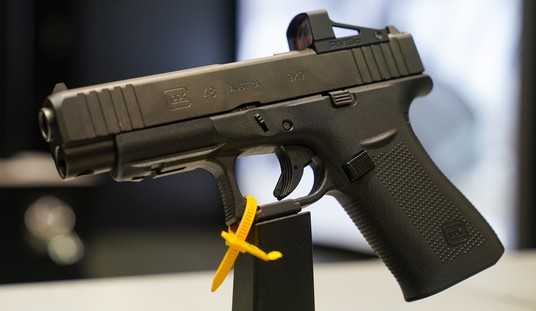I suppose there’s one bit of good news for the tens of thousands of Illinois residents who’ve been waiting for a year or more for their Firearm Owner ID cards; thanks to the lengthy delays by the Illinois State Police their information wasn’t yet entered into a database that was the recent target of hackers attempting to gain access to the personal details of FOID card holders.
The official story from the Illinois State Police, at least at first, was that there was an “attempted” breach of personal information, but that hackers weren’t able to actually gain access. Over at The Truth About Guns, however, John Boch reported that he’s been hearing something different from a few local gun shops.
The Illinois State Police have reportedly told some gun dealers that hackers breached their security protocols. The gun dealers sharing this information with me wished to remain anonymous out of fear of retribution from the Governor’s office.
What’s more, according to those inside the ISP, an unspecified amount of gun owners’ personal data was reportedly downloaded by the hackers.
This past weekend, the website was shut down completely for an upgrade to remedy the security vulnerabilities that the hackers exploited.
And after keeping mum about the cyberattack for most of the week, on Friday afternoon, the Illinois State Police finally admitted that the personal details of more than 2,000 FOID holders have been “possibly” compromised.
Illinois State Police officials said the information of about 2,000 FOID cardholders, or about .0008% of the total number of FOID cardholders in the state, may have been accessed in the attempted hack. Those people will be contacted, the agency said in a news release.
Cybersecurity consultant John Bambenek said the hack raises not just concerns about cybersecurity, but also physical security.
“I’d rather there not be a database somewhere of gun owners and their addresses,” Bambenek said. “It doesn’t take that much imagination to figure out how that information can be used in ways that increase the risk to those persons.”
Right? This is a major black eye for the state’s FOID law, which has already been under legal attack thanks to the lengthy delays in processing applications on the part of the state police. Some Illinois residents have been waiting over a year for their FOID card, which is required before you can legally own or purchase a firearm. Not only is the state not complying with its own law mandating the ISP process applications within 30 days, it can’t maintain security over the list of gun owners that it compiles.
There was already reason enough for a judge to recently declare the FOID law unconstitutional, at least when it comes to guns in the home, but this security breach adds even more heft to the argument that the FOID law is an unnecessary and unconstitutional violation of citizens’ rights.
Unfortunately, instead of killing off the FOID system, lawmakers in Illinois recently expanded the law. Democrats were even able to garner the support of some Republicans by assuring them that the bill would fix the backlog of both FOID and concealed carry license applications, though the bill won’t take effect until January 1st and its unclear when any of the additional funds will actually be put to use to hire more staff. At the moment, the best chances of scrapping the insecure and unconstitutional FOID system rest in the court system, and while a case challenging the constitutionality of the law is headed to the state Supreme Court (for a second time, actually), it could be months before a decision is handed down. It’s also worth noting that the first time the Illinois Supreme Court had the chance to declare the FOID law unconstitutional, it instead kicked the case back to the circuit court on a technicality.
Illinois’ FOID system is a disaster that reduces both the physical and online security of Illinois residents, and I wish there was an answer that offered instant relief for them. Illinois gun owners (and those who’d like to own a firearm legally) are suffering through an obscene violation of their civil rights (including their right to privacy), and there’s just not much hope for swift relief.









Join the conversation as a VIP Member